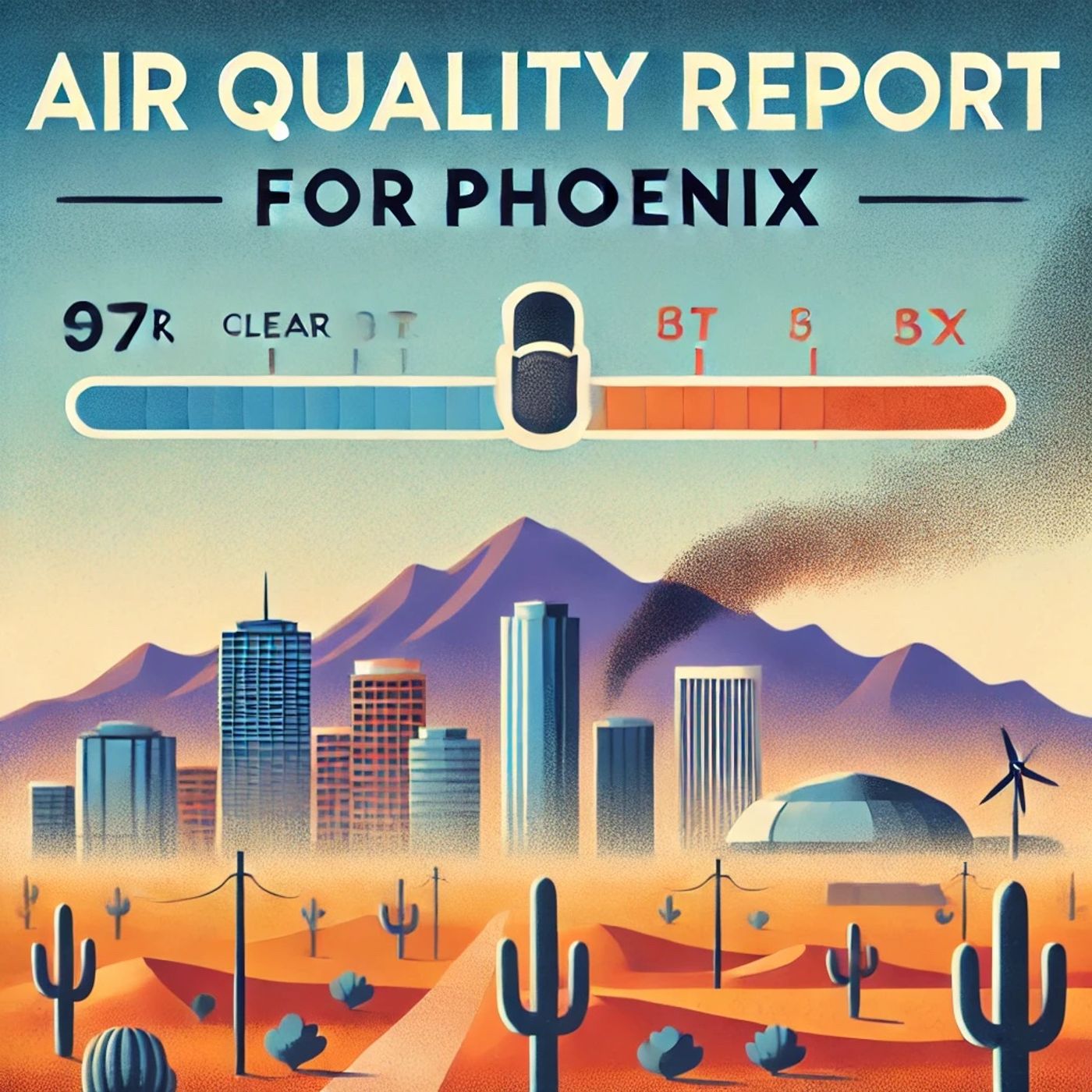Listen "Phoenix's Air Quality Moderately Acceptable but Sensitive Groups at Risk"
Episode Synopsis
Phoenix, Arizona, known for its scorching desert climate and sprawling urban landscape, often faces challenges related to air quality. Today, the city is experiencing moderate air quality levels, a situation influenced by various factors including weather conditions, local emissions, and regional geographic characteristics.The Air Quality Index, or AQI, is a standardized method used to communicate how polluted the air currently is or how polluted it is forecast to become. The AQI scale ranges from zero to 500, where lower values represent good air quality and higher values indicate worse conditions. As of today, Phoenix's AQI hovers in the moderate range, specifically between 51 and 100. This means that air quality is generally acceptable; however, there might be some pollutants that could pose a risk to sensitive groups such as children, older adults, and individuals with respiratory issues.Several key pollutants contribute to Phoenix's air quality readings. Ground-level ozone is a primary concern, particularly during the warmer months. Ozone is not emitted directly into the air but forms when nitrogen oxides and volatile organic compounds react in the presence of sunlight. In Phoenix, high temperatures and ample sunlight provide ideal conditions for ozone formation. On high ozone days, individuals with respiratory conditions like asthma may experience exacerbated symptoms.Particulate matter, especially PM10 and PM2.5, also affects Phoenix's air quality. PM10 consists of larger particles, such as dust from construction sites or unpaved roads, while PM2.5 is made up of finer particles that can penetrate deeply into the lungs, originating from vehicle emissions, industrial activities, and wildfires. Today, the particulate matter levels are within a moderate range, but still warrant caution for those with existing health concerns.Local meteorological conditions play a significant role in daily air quality. Phoenix's weather is characterized by high temperatures and low humidity, which can contribute to the accumulation of pollutants. Stagnant air conditions, often seen during temperature inversions, can trap pollutants close to the ground, degrading air quality until wind or rain disperses them.The city and state authorities actively monitor air quality and implement measures to mitigate pollution levels. Programs aimed at reducing vehicle emissions, controlling dust from construction sites, and encouraging public transportation are a few examples of ongoing efforts to improve air quality.Residents can take individual actions to mitigate exposure to pollutants, particularly when levels fall into the moderate or higher ranges. Staying indoors during peak pollution hours, using air purifiers, and avoiding strenuous outdoor activities can help reduce health risks. People can also contribute to better air quality by carpooling, using public transportation, and refraining from using gas-powered lawn equipment on high pollution days.In summary, today's air quality in Phoenix is moderately acceptable but poses potential risks for sensitive groups. Ongoing awareness and proactive measures can help residents navigate and mitigate the impacts of air pollution. Staying updated with real-time air quality reports and following health advisories remain crucial for ensuring individual and community well-being.This content was created in partnership and with the help of Artificial Intelligence AI
More episodes of the podcast Phoenix Air Quality Report - Daily
Phoenix Enjoys Excellent Air Quality Today
23/08/2025
 ZARZA We are Zarza, the prestigious firm behind major projects in information technology.
ZARZA We are Zarza, the prestigious firm behind major projects in information technology.
